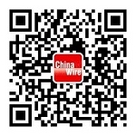|
Reclusive Billionaire Explains How He Beat Apple in Chinasource: stuff.co.nz Duan Yongping is convinced Tim Cook didn't have a clue who he was when they first met a couple years ago. The Apple boss probably does now. Duan is the reclusive billionaire who founded Oppo and Vivo, the twin smartphone brands that dealt the world's largest company a stinging defeat in China last year. Once derided as cheap iPhone knockoffs, they leapfrogged the rankings and shoved Apple out of the top three in 2016 - when iPhone shipments fell in China for the first time. They managed to do it because the American smartphone giant didn't adapt to local competition, the entrepreneur explained in what he said was his first interview in 10 years. Oppo and Vivo employed tactics Apple was reluctant to match, such as cheaper devices with high-end features, for fear of jeopardising its winning formula elsewhere, Duan said. "Apple couldn't beat us in China because even they have flaws," the 56-year-old electronics mogul said. "They're maybe too stubborn sometimes. They made a lot of great things, like their operating system, but we surpass them in other areas." That's not to say Duan doesn't appreciate the iPhone maker's global clout. In fact, the billionaire's obsession with his US rival is legion: he's long been a big-time investor in Apple and an unabashed fan of its chief executive officer. "I've met Tim Cook on several occasions. He might not know me but we've chatted a little," Duan said. "I like him a lot." Apple couldn't confirm Duan's meeting with Cook when contacted by Bloomberg. But Duan has blogged incessantly about Apple's products, share price and operations since 2013, when the company was worth half what it is today. He needs "a really big pocket" because he carries four devices, including a heavily-used iPhone. "Apple is an extraordinary company. It is a model for us to learn from," Duan said. "We don't have the concept of surpassing anyone, the focus instead is to improve ourselves." Oppo's gains against Apple may now earn an even broader following for the billionaire dubbed China's Warren Buffett by local media for his investment acumen. Born in Jiangxi, a birthplace of Mao Zedong's Communist revolution, Duan began his career at a state-run vacuum tube plant before making his name with homegrown electronics. Duan left the factory floor around 1990, when China was just embracing capitalism and opening industries to private investment. He headed to southern China's Guangdong province, then the cradle of liberal reforms, to run a struggling electronics plant. His first product was the "Subor" gaming console with dual-cartridge slots - a direct shot at Nintendo's classic Family Computer, known elsewhere as the Nintendo Entertainment System. It was the first iPhone in 2007 that paved the way for Oppo and Vivo. While they share a common founder in Duan, the sister brands are fierce competitors, trotting out duelling marketing campaigns. In 2005, the entrepreneur and his protege Tony Chen decided to create a new company. Dubbed Oppo, it sold music players but ramped up to smartphones in 2011. In 2009, he created Vivo, headed by another of Duan's disciples, Shen Wei. At first, neither label garnered much attention. The iPhone was captivating users with its revolutionary apps system and elegant interface, while BlackBerrys lorded over the corporate market. But Oppo and Vivo then developed a marketing-blitz approach that relied on local celebrity endorsement and a vast re-sellers' store network across China. They crafted an affordable image that appealed to a millennial crowd, then tricked out their devices with high-end specs. On the surface, Oppo and Vivo phones now routinely surpass the iPhone on measures such as charging speeds, memory and battery life. It paid off. The duo together shipped more than 147 million smartphones in China in 2016, dwarfing Huawei's 76.6 million units, Apple's 44.9 million and Xiaomi's 41.5 million, IDC estimates. Oppo and Vivo both doubled their 2015 haul. In the fourth quarter, they were No. 1 and No. 3, respectively - Huawei was second. |

